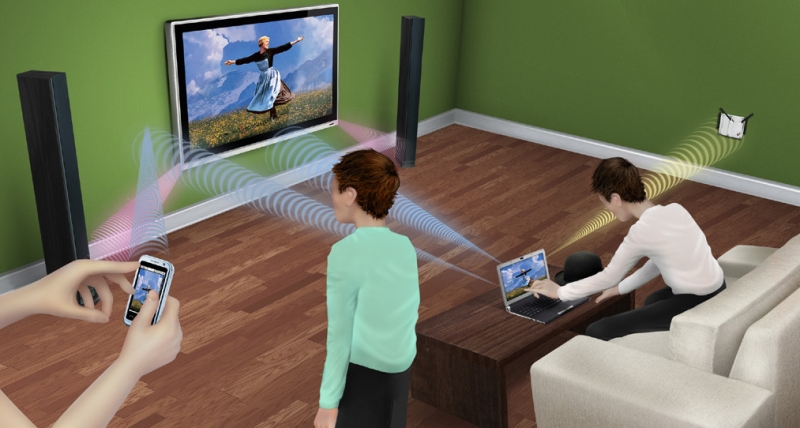
Samsung has developed 60GHz Wi-Fi technology that it claims bridges the gap between theoretical and actual Wi-Fi speeds. The technology touted 802.11ad will enable data transmission speeds of up to 4.6 gigabits per second (Gbps), or 575 megabytes (MB) per second, a five-fold increase over the existing maximum of 866Mbps.
Just to give you an idea, the new Wi-Fi technology would enable a 1GB movie to be transferred between devices in less than three seconds, and would allow uncompressed high-definition videos to be streamed from mobile devices to TVs in real-time without any delay.
Samsung claims its 60GHz Wi-Fi technology maintains maximum speed by eliminating co-channel interference, regardless of the number of devices using the same network, exhibiting an actual speed which is over 10 times faster than that of the existing 2.4GHz and 5GHz Wi-Fi technologies.
The South Korean company says it has solved the penetration and path loss issues associated with millimeter waves by leveraging millimeter-wave circuit design and high performance modem technologies, as well as by developing wide-coverage beam-forming antenna.

“Samsung has successfully overcome the barriers to the commercialization of 60GHz millimeter-wave band Wi-Fi technology, and looks forward to commercializing this breakthrough technology”, said Kim Chang Yong, Head of DMC R&D Center of Samsung Electronics.
Samsung plans to apply the technology to a wide range of products, including audiovisual, medical, as well as telecommunications equipment. It will also be integral to development of Samsung's Smart Home initiatives related to the Internet of Things, the company says. Commercialization of the technology is expected as early as next year.
https://www.techspot.com/news/58405-samsung-60ghz-wi-fi-technology-you-transfer-1gb.html
